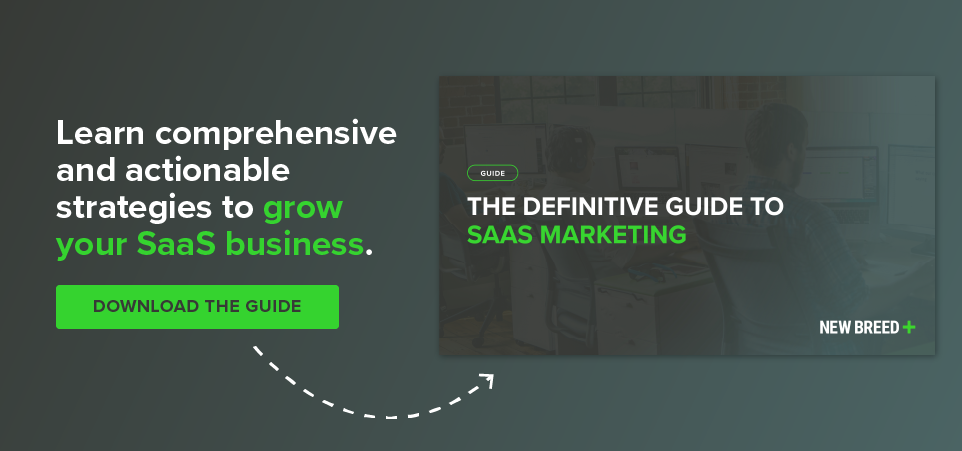4 Email Marketing Mistakes that Affect Free Trial Conversion Rates

A key step in your SaaS sales funnel is getting visitors to sign up for your free trial. But when the trial period ends and it’s time for your users to take out their credit cards and pony up for your software, how many of your leads are converting?
Totango found that on average, 15 percent of SaaS users converted after their free trials when a credit card wasn't required to begin the trial. (Companies who require a credit card received fewer free trial signups but converted by 50 percent after the trial.)
But no matter where your conversion rate is compared to these averages, you can always improve your conversions with better email marketing tactics. Here are 4 tips to help you convert more users by avoiding common SaaS email marketing mistakes.
Mistake #1: You’re not sending action-based emails
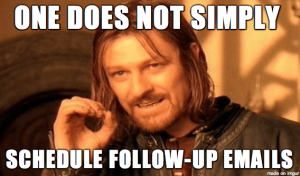
Source: SixteenVentures
Hate to break it to you, but autoresponders are dead. According to Lincoln Murphy at SixteenVentures "If you're still sending emails based on a timed sequence instead of triggered by actual user behavior, you're 100 percent doing it wrong." The number-one problem with time-based drip emails (autoresponders) is that the same message gets delivered to every user. That includes your most active users and people who have completely forgot they signed up for your free-trial. The truth is that each user moves through your funnel at his or her own pace. So why send users emails based on a random number of days that have passed since they signed up for your trial?
It takes more effort to set up an action-based email campaign, but it pays off. GrooveHQ improved its end-of-trial conversion rates by 10 percent when it switched to an action-based email campaign.
Mistake #2: Your emails don’t add enough value to your users
If your behavior-triggered emails aren’t adding enough value for your subscribers, you’re missing out on conversions. Let’s look at an example of an email that doesn’t add value to the user:
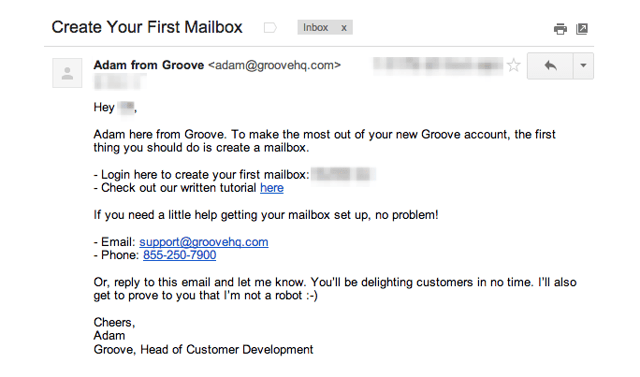
GrooveHQ was sending this email but, later realized it was full of, “useless product tidbits that had little to do with what the user actually wanted." (The GrooveHQ staff has since replaced this email with a more helpful one.)
Customer.io calls these product-focused messages “nagging emails.” And nobody wants nagging emails. Instead, here’s what you should do:
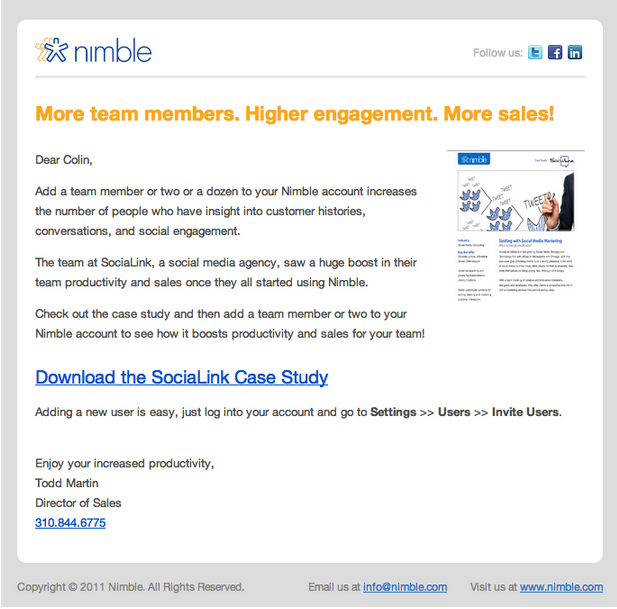
This email first makes it obvious how Nimble can improve its users' sales and productivity, and then it explains how to add a new user.
Mistake #3: You’re not sending emails when your leads get “stuck"
Patrick McKenzie found that 40–60 percent of free trial users (for almost every SaaS company) will log in once and never come back. Obviously, not everyone who signs up for your free trial will fully engage with your app. But that’s why it’s so important for your behavior-triggered email campaign to re-engage your users.
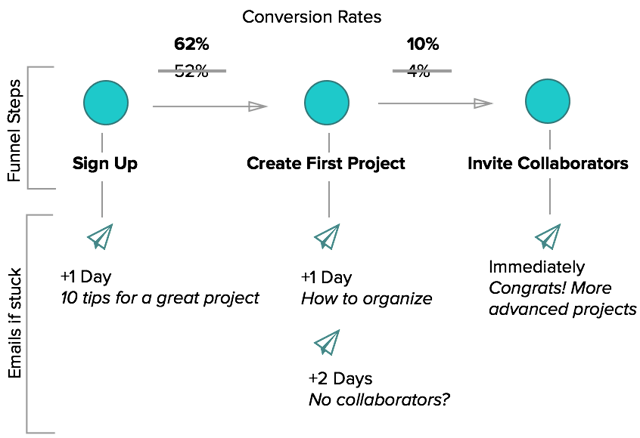
The above diagram from Customer.io gives us a clear example of an email flow for users who “get stuck.” To re-engage your free-trial users with email marketing:
- Map out your ideal customer flow
- Use analytics to find exactly where your users are dropping off
- Craft and deliver follow-up emails for users at those “drop-off points”
Bottom line: When you see users getting stuck, send them emails that inspire them to take the next step. For example, Buffer used its analytics to discover that users were more likely to churn when they had no future posts scheduled. So Buffer started emailing customers at this point.
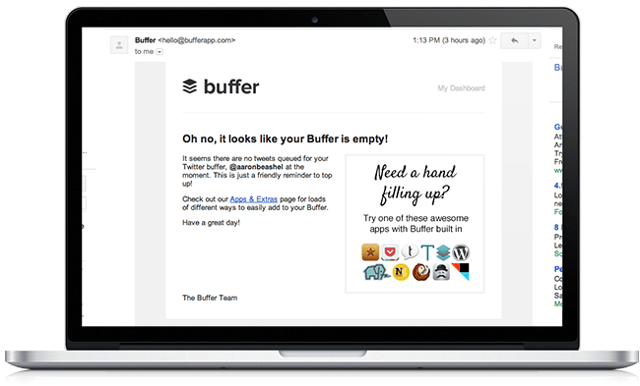
Don’t be afraid to follow-up with these users if they don’t respond to your first triggered email. A study by Experian found that follow-up emails resulted in an average 54 percent increase in conversions.
Mistake #4: Forgetting about the users that didn’t convert during the trial
Just because a user didn’t convert during the free trial, doesn’t mean he or she never will. Users might need more time to decide or they might simply be too busy to sign up when their trials ended. Don’t forget about your free trial leads that didn’t convert. You’re leaving money on the table every time you do. Instead, continue sending awesome emails (as long as you have their permission, of course).
Here’s a simple follow-up email from GrooveHQ:
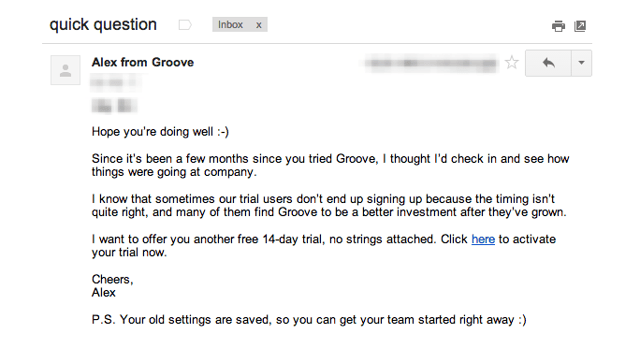
The company sent this email 90 days after the free trial. It converts at around 2 percent. And while 2 percent is no landslide victory, that’s still winning back 2 percent more customers that would have been lost.
There are three kinds of emails I’d recommend sending to your post-free-trial users:
- Emails that ask for feedback
- Emails that add value (educate, entertain or both)
- Emails that extend free-trial periods
Just don’t offer discounts.
Jack Reamer
Jack is a SaaS email and B2B marketing expert and is the founder of Emails That Sell, an email marketing agency built for business owners or marketing executives who want to grow their company, but they're not exactly sure how to do it.



